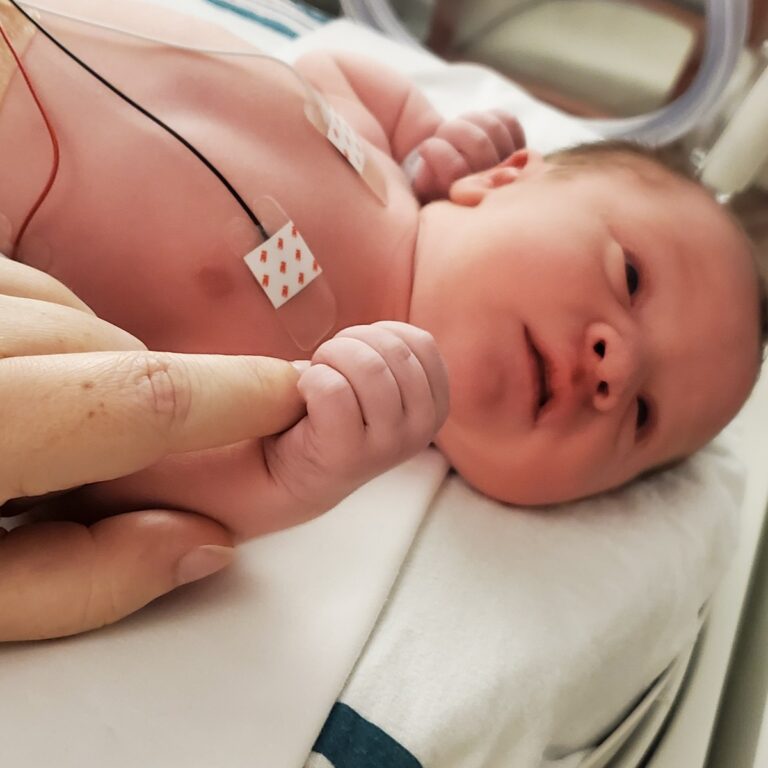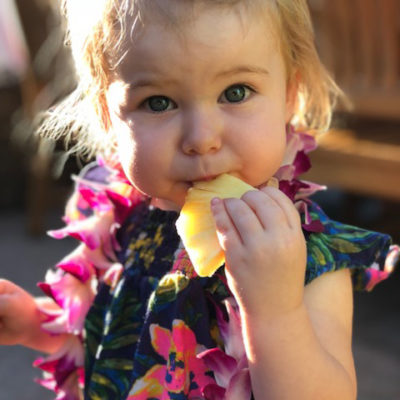PCOS and Pregnancy: A Different Kind of Success Story
When Diane kept hearing that she needed to lose weight for better fertility, she listened to her body and a recommendation to visit RSC
The birth of Diane and Chris’ son brought them overwhelming love. It was a Sunday when Diane discovered she was pregnant. And while it may have been the start of her week, it marked the end of a nearly two-year journey of fertility struggles – one that began with a diagnosis of polycystic ovary syndrome (PCOS) at the young age of 18.
That’s when she started noticing that her periods weren’t normal, even while on the pill. She took a pregnancy test, which came out negative, and was confused about what was happening to her body.
The weight of a diagnosis of PCOS and pregnancy dreams
It was around this time that she was diagnosed with PCOS. Frustrated with the lack of guidance from her doctors, she turned to online research and her mother for information.
It wasn’t until she was in her 30s, when she and her husband, Chris, decided they wanted to start a family, that she decided to get more support. “It wasn’t happening naturally,” Diane recalls, “but every time I went in to see an OB-GYN, they repeatedly told me I needed to lose weight.”
Diane remained skeptical, knowing deep down that something more was amiss. “I didn’t voice my concerns at the time. I internalized my frustration and felt like they were telling me it wouldn’t ever happen for me.”
This continued for nearly a year and a half, and Diane still struggled to get a period. Finally, it was her primary care physician who recommended seeking help from the Reproductive Science Center, igniting a glimmer of hope in the couple’s hearts.
Related Fertile Edge Podcast: What is PCOS?
Turning to RSC fertility clinic: a beacon of hope and guidance
Upon their first visit to the Reproductive Science Center of the San Francisco Bay Area (RSC), the couple felt an immediate shift in their journey. Unlike previous encounters, the clinic did not place undue emphasis on weight as a barrier to fertility. Instead, the medical team viewed the presence of PCOS as just another facet to factor into the treatment plan.
Finally, they had found a place that not only acknowledged their struggle but also presented a clear plan for moving forward. The couple opted for intrauterine insemination (IUI), a less invasive procedure compared to in vitro fertilization (IVF).
Having a well-defined plan provided Diane with a roadmap and eliminated the uncertainty she had faced before.
Diane recalls, “They didn’t say anything that sounded like, No [you can’t get pregnant]. They gave me a plan. They gave me something to work with.”
Unveiling the obstacles: blocked fallopian tubes
The treatment process began with a series of tests, including a hysterosalpingography (HSG) to check if her fallopian tubes were blocked. The results revealed a blockage in one tube, narrowing their path forward.
Despite the setback, the couple remained resilient.
“Every single person I worked with at RSC was so friendly and so helpful, and I think that they really take to heart that people are going through a difficult process,” says Diane.
After confirming that one tube was working and there were eggs present, they received a call in November 2021 saying Diane’s hormone levels were perfect for IUI. The process unfolded rather swiftly from there.
The couple wasted no time and two days before Thanksgiving, they underwent the IUI procedure. Miraculously, after one treatment they received the greatest gift they had ever hoped for – a positive pregnancy test.
Celebrating IUI success over PCOS and pregnancy
Unable to contain her excitement, Diane deviated from her original plan to keep the news secret until the second trimester. Instead, she orchestrated a creative reveal using a PowerPoint presentation, capturing her loved ones’ priceless reactions.
At RSC, Diane found not only hope but personalized care that made a world of difference. The doctors and staff offered compassionate support, making her feel seen and heard during this vulnerable time.
Upon the birth of their son, Diane described the overwhelming love she felt for her child, a love she never knew could be so profound.





